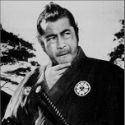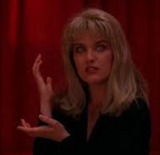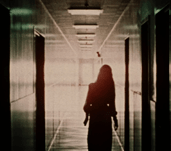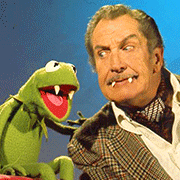|
Dr.Caligari posted:Any recommendations for similar , serious/ gritty movies like Blast Of Silence? To name a few of the classics that I think get serious about their violence, Murder By Contract, Criss Cross, The Asphalt Jungle, The Big Heat, Underworld USA. Wheat Loaf posted:My favourite movie is The Long Good Friday which borrows Chandler for its title but I'm not sure if it's neo-noir or not. Of course I sometimes see Miami Vice of all things described as neo-noir (and in complete fairness, there are certain episodes like "Out Where the Buses Don't Run" that definitely are, but this is also a show with an episode where Edward James Olmos sneaks around a mansion taking out KGBs with a samurai sword). Noir is next to punk in terms of how broadly it's applied once you get past the immediate formal constraints. The Long Good Friday I think is safely regarded as neo-noir, but to me noir is too purgative and final for a TV format of someone solving crimes every week. Cracker is probably as close as it gets though.
|
|
|
|

|
| # ? May 14, 2024 03:31 |
|
Wheat Loaf posted:
Prime Suspect did end up influencing a lot of the look and feel of the recent craze of Scandinavian Noir. Nasty murders taking place in gritty and desolate places, large focus on procedure and the inner working of police life and work, and that of the people affected by the crime. It's definitely moody but I still think that it, and Cracker, are more gritty police dramas than noirs. But then again, Noir is very much a time and place kind of genre, and the best Neo-Noir can do is attempt to mimic that time and place(Like how Brick makes everyone talk funny), and none of those TV shows are really concerned with that.
|
|
|
|
Electronico6 posted:Prime Suspect did end up influencing a lot of the look and feel of the recent craze of Scandinavian Noir. Nasty murders taking place in gritty and desolate places, large focus on procedure and the inner working of police life and work, and that of the people affected by the crime. It's definitely moody but I still think that it, and Cracker, are more gritty police dramas than noirs. I suppose "hardboiled" would probably be a better fit than "noir" in both cases, then, since that speaks to the characters rather than the setting.
|
|
|
|
 I Am a Fugitive from a Chain Gang (1932) This has been a long time resident on my watchlist. James (through a series of bad events, leading him to trust the wrong man and be in the wrong place at the wrong time) is a man who finds himself a convict and part of a brutal chain gang, performing grueling and tedious manual labor while witnessing abuses from guards. James escapes from the chain gang and starts a legit life in Chicago, where he lives for years, gaining friends and trust. Eventually the law catches up with him, and they want him back. A battle takes place over what should happen, which involves Chicago saying they are unwilling to head him over to the feds. Jim is eventually offered a deal which sees him avoiding the chain gang and only doing a short amount of time. It's not long until Jim realizes that the feds don't intend to hold up their end of the bargain. This is a really good movie , and addresses many, many things which are hot topics til this day. The cities/ state rights not to hand over wanted persons, prison conditions, fair sentencing, and what 'rehabilitation' should mean in this country. The movie plays it safe, and might suffer, from making Jim a little too innocent, but that was the style of movie at the time. That doesn't prevent this movie from taking a look at something which most people still don't... and that is, people do act out when they are stripped of their humanity and treated less than human. This movie even does well at showing newspaper headlines which would leave you to believe Jim is a violent 'lifer' who is acting out just to cause trouble. I'm sure someone could (and probably has) written a thorough paper on this film and what it has to say about things, because I feel like it is a lot and I don't have the ability to do it any justice. This isn't the gangsters, cigarettes and dames movie I usually look for when browsing noir, but it is an important movie.
|
|
|
|
The Big Combo (1955) Bastard cop vs bastard gangster in a battle of the bastards, also a woman is there. Feels like it was made on a dare to create the noir-est noir possible out of simple elements. Richard Conte is particularly good as the charismatic, fast talking gang leader Mr. Brown. Also has a great ending set entirely in the fog, that looks sort of like a much more cynical world's version of the end of Casablanca. 4/5  On Dangerous Ground (1951)  Unusual for half of the movie taking place in a rural, snowy area outside of the typical cities. This feels kind of like two movies smashed together, one a hard boiled noir and the other a melodrama, and unfortunately neither really gets the space it needs to develop into something interesting. Ida Lupino, who plays a blind woman here, was an uncredited co-director on this, but if you really want to see what she can do with a noir, check out The Hitch-Hiker. 2.5/5 
|
|
|
|
#2 - Where Danger Lives (1950) Went into this one with no expectations other than Robert Mitchum and Claude Rains, and got a wonderful, weird little noir. A young doctor (Robert Mitchum) falls in love with Margo, a patient with a mysterious past who attempted to kill herself (Faith Domergue), and after an unplanned murder leaves Mitchum concussed and both wanted by the law, they flee to Mexico. A darkly comic take on noir, it's got a lot of the usual trappings, but plays the coincidences and twists like a Coen brothers movie. Multiple beats are met with both "oh poo poo" and riotous laughter. Just an inside peak at how funny this movie can be; while stuck in a town, a wanted picture Margo's face is given to the town council while she's in the very room, but no one recognizes her because a man grabs the picture and immediately draws a fake beard on it. This sort of ridiculous, cosmic absurdity is ground zero for the comedy noirs the Coens would later make one of their signatures. Mitchum and Domergue are great, with some really fun physical acting from the former, and the lighting and camerawork are beautiful, great use of closeups and key lighting.
|
|
|
|
You had me at Robert Mitchum and Claude Rains appearing in the same film. Also, I just realised that 1950 was an insanely good year for noir. The Asphalt Jungle, Gun Crazy, In a Lonely Place, Sunset Boulevard, and The Breaking Point all came out during that time. I wonder if any year can top that. Samuel Clemens fucked around with this message at 14:19 on Nov 12, 2018 |
|
|
|
Samuel Clemens posted:You had me at Robert Mitchum and Claude Rains appearing in the same film. It also gave us Night and the City, which I think is my very favourite of an absurdly stacked year.
|
|
|
|
Now that I have more free time, I figured I'd use this opportunity to watch all the films on the They Shoot Pictures, Don't They? top 1000 which I haven't seen yet and which are also part of their 1000 Noir Films project. By sheer coincidence, it turned out be exactly thirty titles, which should be doable until the end of November. The full list in case anyone was curious (and looking for some ideas themselves): quote:Ace in the Hole Not sure how many of those are widely considered noirs (the TSPDT guy seems to use a pretty loose definition), but then, that's part of the fun of exploring. UNRULY_HOUSEGUEST posted:It also gave us Night and the City, which I think is my very favourite of an absurdly stacked year. I still gotta get on that one. Everyone who's seen it raves about it.
|
|
|
|
Have you seen those? There are some great titles in there Pickup On South Street is really underrated... Or it could just be my liking of Sam Fuller and Richard Widmark Also seeing movies like “No Country For Old Men” on a noir list always reminds me of how little I understand the definition of noir.
|
|
|
|
Those are just the ones I haven't seen. There are a lot more noirs on the list which I excluded because I already watched them at an earlier point. And yeah, the 1000 Noir Films list seems to include just about anything that somewhat resembles classic noir in style or plot. It can get a bit silly, but it might also provide a welcome change of pace every now and again.
|
|
|
|
#3 - The Black Dahlia (2006) I always try and mix it up with some neo-noir during Noirvember, and this pick, was a misstep. I read the book earlier this year and had a great time, so I was curious how they would adapt such a dense, twisty story, and it turns out the answer is, you just cut out a third or so of the book. Which, unfortunately, hampers a story that's already weak by noir standards. The middle act doesn't feel like it's moving the story forward, it feels like it's arranging pieces for when the story moves forward (a problem with the source material, alas). The editing is also way off here, it misjudges when it should be snappy and when it should play longer, and so while the film itself keeps moving and never feels too leaden, a lot of the twists lose their impact. Still, with Brian De Palma and Vilmos Zsigmond behind the camera, you know they're brining their A-game to the shots; one in particular that stands out is a multi-story crane shot when the discovery of the Black Dahlia's body plays out. Overall, not bad, but also not good. Fun seeing The Phantom of the Paradise in another De Palma film, though.
|
|
|
|
So 2 of the best new-to-me film's I've seen this month so far are on Youtube: Too Late for Tears (1949) under its rerelease name "Killer Bait" https://www.youtube.com/watch?v=2h3GR_DyEms White Heat (1949) https://www.youtube.com/watch?v=VNJQldHBntE Both came out the same year and both center on their respective leads' portrayals of moral oblivion. Too Late for Tears was more of a cheapie, having spent most of its budget on its two big name actors, so it's not the flashiest looking noir. It makes up for it with a great script, performances, and Dan Duryea pronouncing "tedious" as "tee-jus". White Heat was more of a gangster/heist film than anything, but its darkness in its look, story, and character relationships was unmistakably noir.
|
|
|
|
Scott is so good in Too Late for Tears, the only thing keeping it from perfection is the Code-mandated ending. And of course, White Heat is unimpeachably fantastic.
|
|
|
|
White Heat kicks unbelievable amounts of rear end. That scene where James Cagney gives the guy in the car trunk some air holes is cold as poo poo.
|
|
|
|
Well, On Dangerous Ground is the first dud I've seen from Nicholas Ray.  On the other hand, Rififi owns.
|
|
|
|
Ace in the Hole Has all the qualities I've come to associate with Billy Wilder: stark black-and-white photography, acerbic, razor-sharp wit, and characters so cynical the only reason they haven't murdered each other yet is because they deem it more profitable to leave the others alive. Ace in the Hole is often described as a media satire, and it does take plenty of shots at crooked reporters, but it seems even more vitriolic towards the general public who treat the tragedy of a man like a (literal) carnival. It's not quite as unrelentingly bleak as Sunset Boulevard or Double Indemnity, since it does suggest a path of redemption for our protagonist: If only we could learn to see the Leos of this world as people rather than headlines, we'd be able to overcome the media circus. Of course, we didn't, so we got Nightcrawler instead. Favourite aspect: This may very well be the coolest way to light a match ever.  Least favourite aspect: Not enough banter between Kirk Douglas and Jan Sterling. In fact, the whole film should have just been them going at each other. Alphaville I feel the same way about Godard as I do about Tarantino: a talented director with an appealing and unique visual style marred by his overwrought dialogue. Alphaville is pretty good whenever no one speaks and the minimalistic depiction of urban Paris at night does all the talking. However, the philosophical ramblings concerning the question of emotions vs logic left me cold. Still, there are a few neat touches (the Bible being replaced by a dictionary for example), and Godard is at least self-aware enough to not take the whole thing too seriously. Favourite aspect: The execution scene is perfectly grotesque, striking a good mix between funny and horrifying. Least favourite aspect: Alpha 60's grating voice. How did this computer ever manage to convince people to put it in charge when it sounds so unappealing? Bob le flambeur Due to my poor French skills, I assumed this would be the story of an arsonist called Bob. Turns out that 'flambeur' actually means 'gambler'. Initial disappointment aside (seriously, there must be some noir featuring a protagonist with a proclivity for starting fires), this doesn't make for a very good thriller since there's no clear goal until halfway through and every narrative turn is telegraphed way in advance, but it does work as an interesting character study. Bob is about as affable as criminals come, liked by gangsters and the police alike. The pleasant mask hides a nasty dark side though, one which only surfaces when he's gambling or scheming. The gambling scenes themselves are great, particularly the final one, highlighting the rush you feel whenever a winning streak comes along and the difficulty of getting out before it's too late. Favourite aspect: Guy Decomble giving an excellent performance as inspector torn between his admiration for Bob and his duty as an officer of the law. Least favourite aspect: This is pretty much male chauvinism: the movie. The women primarily exist as eye candy or to drive the plot along and Bob threatens to spank the female lead twice and actually slaps her once. Shame because Anne had the potential to be an interesting character if the film had fleshed her out a bit more. Branded to Kill This is a noir in the same way that El Topo counts as a western. The studio executives supposedly fired Suzuki after they saw the final cut, deeming it incomprehensible, which is clearly nonsense. Even without the exposition common to the genre it's not that hard to follow the overall narrative of a disgraced assassin having to fight his former organisation. However, the executives were right insofar as that Suzuki clearly doesn't care too much for this plot, treating it as a mere vehicle for examining existentialist themes in style. And, my God, what style. This film just oozes cool in every frame, from the opening action scenes all the way to the final confrontation. It's the work of someone so confident in his skills as a director that he liberally breaks every cinematic convention without regard for the audience, resulting in one of the most unique gangster films I've seen. Favourite aspect: Hard to narrow it down to one, but the assassination by drainpipe is definitely an all-timer. Least favourite aspect: The fact that it didn't spawn a million sequels.
|
|
|
|
The Suspect (1944) Fairly typical "sympathetic murderer" story, more of a period piece than a noir. The highlight here is the central performance by the great Charles Laughton, who captures the overwhelmed pain of a good man driven to murder perfectly. The scenes where Laughton confronts the detective work better than the melodrama, but it has at least one great scene involving a staircase. 3/5  Phantom Lady (1944)  Weird, expressionist, woman lead noir about a loyal secretary who turns detective to track down the man who framed her boss for murder. Ella Raines makes for a very capable heroine, but of course since this is the 40s she ultimately has to be doing this all for wuv. Blech. Still this has a lot of great scenes, including a villain's shadowy monologue about hands and a bizarre scene set in what appears to be a jazz dungeon(?) with Elisha Cooke Jr. as an extremely horny drummer(!). Even though this is from the 40s, this has a very Pre-Code feel. 3.5/5 
|
|
|
|
Kiss of Death is amazing - one of the best noirs I've ever seen. I've only seen a few other films with Victor Mature, but he's great in this. Of course, it's Richard Widmark who steals the film wholesale, with that rictus grin and laugh.
|
|
|
|
Any recommendations of noirs that either a) star people of color, or b) are particularly meditative/poetic/melancholic?
|
|
|
|
feedmyleg posted:Any recommendations of noirs that either a) star people of color, or b) are particularly meditative/poetic/melancholic? No Way Out (1950, not the Kevin Costner film they made a joke about on Family guy) In the Heat of the Night Both these movies star Sidney Poitier. Everything else I can think of would be Neo Noir, hell even In the Heat of the Night is filmed in color.
|
|
|
|
feedmyleg posted:Any recommendations of noirs that either a) star people of color, or b) are particularly meditative/poetic/melancholic? A: Odds Against Tomorrow by Robert Wise and The Crimson Kimono by Samuel Fuller, both released at the very end of the period in 1959. B: The one that comes to mind with that description is one of Scorsese's favorites, Force of Evil by Abraham Polonsky. It's available on the Internet Archive here.
|
|
|
|
Watched The Third Man last night. Great as always. I asked in the chat thread whether anyone had any recommendations for movies where a character either does not appear or has very limited (but impactful) screentime but whose presence is always felt, like The Third Man or The Usual Suspects or to a certain extent No Way Out (the Kevin Costner one, not the one mentioned above). It seems to me that there must be many examples of noir or neo-noir movies which do the same thing; can anyone suggest any?
|
|
|
|
feedmyleg posted:Any recommendations of noirs that either a) star people of color, or b) are particularly meditative/poetic/melancholic? For b), I'd think of Odd Man Out, Act of Violence, and In a Lonely Place. There's also The Set-Up, which if not for script interference would also qualify for a) - Robert Ryan admittedly does a great job in a role originally written as black, but courtesy of studio anxiety, race was probably the least explored of all the boundaries pushed in classic noir. That's why I think virtually everything that would qualify for a) from the classic period has already been said, although I think it's still worth mentioning Luis Bunuel's The Young One. It's really a Southern Gothic, but in cinema that's basically a niche rural cousin to noir (fatalism, base human impulses, Expressionist cinematography, etc.), hence why Night of the Hunter gets namechecked a lot. Wheat Loaf posted:Watched The Third Man last night. Great as always. I asked in the chat thread whether anyone had any recommendations for movies where a character either does not appear or has very limited (but impactful) screentime but whose presence is always felt, like The Third Man or The Usual Suspects or to a certain extent No Way Out (the Kevin Costner one, not the one mentioned above). It seems to me that there must be many examples of noir or neo-noir movies which do the same thing; can anyone suggest any? This is actually pretty tough, because there's a lot of first wave noir ostensibly around someone dead or lost (The Killers, Gilda, Laura) that nonetheless involve a lot more screentime for them than Orson Welles in The Third Man. I'm sure there's more in neo-noir, but all I can think of to qualify is The Long Goodbye, and maybe Chinatown or The Conversation.
|
|
|
|
UNRULY_HOUSEGUEST posted:That's why I think virtually everything that would qualify for a) from the classic period has already been said, although I think it's still worth mentioning Luis Bunuel's The Young One. It's really a Southern Gothic, but in cinema that's basically a niche rural cousin to noir (fatalism, base human impulses, Expressionist cinematography, etc.), hence why Night of the Hunter gets namechecked a lot. Thanks, I'll check out your suggestions. I'll be watching out Chan Is Missing from '82 soon and was hoping there was something halfway between that and a Charlie Chan flick made in the classic era. I suppose it makes sense that I'd have to jump to the Japanese film industry for that—would something like Stray Dog, Drunken Angel, or I Am Waiting count as noir or are they too stylistically removed?
|
|
|
|
feedmyleg posted:Thanks, I'll check out your suggestions. I'll be watching out Chan Is Missing from '82 soon and was hoping there was something halfway between that and a Charlie Chan flick made in the classic era. I suppose it makes sense that I'd have to jump to the Japanese film industry for that—would something like Stray Dog, Drunken Angel, or I Am Waiting count as noir or are they too stylistically removed? Admittedly I haven't seen as much of it as I should, but yeah, that's a good call. Japanese noir is very much considered a thing, and built on the same aesthetics.
|
|
|
|
feedmyleg posted:Any recommendations of noirs that either a) star people of color, or b) are particularly meditative/poetic/melancholic? For b), if you’re okay with neo-noir, Fargo is the way to go.
|
|
|
|
Casque d'or Reminded me strongly of Children of Paradise, another French film about the life of petty criminals in the Parisian underworld during the 19th century. Casque d'or lacks the narrative complexity of Carné's outing but is no less emotionally devastating. Marie and the outsider Mandes fall in love, much to the chagrin of Marie's lover Raymond and gang boss Léca. What follows is both one of the most erotically charged romance stories in cinema and an honest look at the brutality of a society in which power grows out of the barrel of a gun (or the edge of a knife). Even those who don't care too much for romance or period pieces should take a look, if only for the extremely bleak ending. Favourite aspect: Every close-up of Simone Signoret's face is a small slice of Heaven. Least favourite aspect: I just can't take Serge Reggiani seriously with that moustache. La chienne The American noir primarily seems to draw from two cinematic wells: German Expressionism with its love for the interplay between shadows and light, and French poetic realism with its unadorned look at the inner lives of sometimes very unpleasant people. La chienne is one of the earliest examples of the latter, showing us a love triangle whose angles are driven to reprehensible deeds through a mixture of love and greed. Ironically, the titular 'female dog' ('bitch' gives off the wrong connotations, since I don't believe the French actually use it as a derogatory term for women) comes across as the most sympathetic of the lot by the end, primarily because she is far more entrapped in her powerless situation than the two men. Which is not to say that their ultimate fate is a simple case of just desserts. As usual with Renoir, fate and society are far crueller than any individual could ever hope to be. Favourite aspect: The opening not only sets the tone for the rest of the film, but also works as a perfect summation of noir as a genre. Least favourite aspect: The subplot involving the second husband contributes little to the overall narrative and primarily seems to exist for a bit of additional (and not very funny) comedy. Dirty Harry I believe Pauline Kael called this the first facist American film. Whether the term truly applies is debatable, but there's no denying that Dirty Harry wears its conservative pro-police brutality and pro-vigilante justice agenda on its sleeve: The film opens with a dedication to all the members of the San Francisco police force who fell in the line of duty, we're introduced to the wife of Harry's partner purely so she can give a speech about the perils of police work, and the story goes out of its way to provide a reason why Scorpio can't be defeated through the legal system. What's scary is how well this works. I found myself laughing at Harry's sardonic quips and shaking my metaphorical fist at the brutal acts of his adversary. When the finale comes around, you really want to see that smug psycho destroyed. It's a film that manages to engage you on a very visceral level, and I think that's why it holds up as a shining (and dangerous) example of conservative filmmaking. Favourite aspect: I do like the few touches indicating that Harry is not the idealistic hero he'd like to be. He nearly gets beat up by an angry mob for misjudging a situation, ruins his first chance of bringing in Scorpio by spying on a naked woman, and bungles the final arrest, forcing the departement to let Scorpio go free. It's an interesting contrast to the badass reputation he's managed to earn in popular culture, and I wish the film had done more with it. Least favourite aspect: The nighttime photography is horrendously dark at times, leading you to wonder what's going on in certain scenes. That seems to be a common issue with action films from that period though. Get Carter Despite being another example of vigilante justice, I found Get Carter a lot less objectionable than Dirty Harry. Perhaps because it never suggests that Carter's destructive tendencies serve a greater good, his violent rampage across Newcastle leaving the bodies of innocent and guilty people alike in his wake. This is the logical endpoint of the hard-boiled noir archetype you see in The Big Heat or Kiss Me Deadly: A disturbingly violent protagonist who, after being personally wronged, lashes out at anyone in the vicinity with little regard for casualties. It's also easy to see how this served as a blueprint for a lot of subsequent thrillers with its bleak portrayal of a decaying urban landscape and its minimalist score accentuating key moments. Favourite aspect: Michael Caine deserves all the acclaim he received for this role. He's sensational as Carter, alternatively sneering, brutal, and salacious. This is a guy who you believe would walk naked in the streets with a shotgun in hand, because he's just that determined. Least favourite aspect: The first act is very meandering, introducing lots of characters without fleshing them out and showing a haphazard investigation that's driven more by coincidence than logical thought. It all sort of coalesces by the end, but not as much as you'd hope.
|
|
|
|
feedmyleg posted:Any recommendations of noirs that either a) star people of color, or b) are particularly meditative/poetic/melancholic? a) in addition to the ones already mentioned, The Well b) Seconding Force of Evil. Also: Moonrise, The Gangster, Secret Beyond the Door, Blast of Silence, The Burglar, Storm Fear, Cry of the City, The Scarf, The Sun Sets at Dawn (not an especially good film, but melancholy), Stranger on the Third Floor.
|
|
|
|
#4 - The Narrow Margin (1952) After his partner is killed while protecting the wife of a slain mobster, a detective must escort the woman from Chicago to LA via train, all while the mob is trying to snuff her. At only 71 minutes, this slick thriller is jam-packed with twists, hidden motives, and everyone hiding secrets from each other, often without even realizing. It’s never confusing or too convoluted, but the short runtime is loaded with story and detail. It’s the kind of movie where everything adds up and comes up in some way later in the film. It’s also well-shot, making great use of the cramped cars of the train. Charles McGraw and Marie Windsor make a great acerbic unlikely partnership, barely tolerating each others’ presence, alongside great turns from the side characters. Highly recommended.
|
|
|
|
Samuel Clemens posted:Dirty Harry Dirty Harry set the stage for the "Police Brutality, gently caress Yeah!" movies we'd get in the 80s, but IMO it isn't really a very good example of that sort of thing. It keeps snapping back to the logical consequences of "breaking rules to get results"where it... doesn't get results. It has plenty of unfortunate implications since it leans really hard on the "crime going out of control" panic, but it's a lot closer to Bullitt than say Cobra.
|
|
|
|
sean10mm posted:Dirty Harry set the stage for the "Police Brutality, gently caress Yeah!" movies we'd get in the 80s, but IMO it isn't really a very good example of that sort of thing. It keeps snapping back to the logical consequences of "breaking rules to get results"where it... doesn't get results. It has plenty of unfortunate implications since it leans really hard on the "crime going out of control" panic, but it's a lot closer to Bullitt than say Cobra. Yeah, I'm always struck by the part where he tortures Scorpio to get the location of the kidnapped woman and still isn't able to save her.
|
|
|
|
Samuel Clemens posted:Casque d'or Have you seen Get Carter quasi remake I’ll Sleep When I’m Dead?
|
|
|
|
#5 - Strangers on a Train (1951) Guy Haines, a famous tennis star, meets a man named Bruno Antony on a train, and gets pulled into a scheme where they must each murder someone the other person wants dead. I’m underversed on Hitchcock, so it was a real treat to watch one from the master himself. Slow by the standards of other noir I’ve watched for this challenge, and not super twisty, but there are a couple of jaw-dropping reveals. The focus instead lies in the characters; how Guy feels about the scheme and his attempts to leave it, and Bruno’s glee in his destruction of others. Robert Walker (Bruno) is wonderfully played, giving some great evil looks and line reads. The building of tension and the finale are also a blast.
|
|
|
|
Double Indemnity annoys me because Edward G Robinson just guesses the right answer every time Kiss Me Deadly is so good, it's so different from everything else and you can tell they're pushing it wherever they can Alan Smithee fucked around with this message at 11:43 on Nov 24, 2018 |
|
|
|
Gilda Only the second-best 1946 noir about a love triangle where one of the angles has close ties to the Nazis, but almost certainly the most captivating story about the machinations of a tungsten cartel ever told. I was surprised to read that this is Charles Vidor's only notable work, because if nothing else, he shows himself to be a skilled technician here, employing smooth camera movements and beautiful framing. The story centres around Glenn Ford's character, but it's quite clear why they named it after his love interest Gilda. She dominates every on-screen moment, and I spent most of the scenes focusing on someone else waiting for her to show up again. Rita Hayworth's performance is so captivating that the film essentially pauses the story three times just to offer her an opportunity to show off her singing skills. The actual plot derails rather badly after the plane scene, culminating in a weak finale that almost comically deflates all the tension which has been built up to that point. The journey there is undeniably fascinating though. Le jour se lève Near the end, one of the characters remarks, "I'm unhappy" to which another responds, "Who cares?". That sums up the general attitude presented here pretty well. Opening with a bystander remarking that blind people are better off dead and closing on police violence, a sense of cruelty and indifference towards the well-being of others permeates nearly every scene of Carné's film, the harshness of its world present on both an individual and societal (working people to death, responding to a criminal with lethal force) level. Like fellow director Renoir, Carné has no interest in judging his characters. He simply observes their violent struggle for happiness with resigned pity. Also, no one can brood like Jean Gabin. The Killing Kubrick's talent for captivating images seems to have been present from the very beginning (not too surprising given he started out as a photographer I suppose), but he lacks the confidence in his storytelling capabilities which would come to define his later works. The first half of this heist thriller is ridiculously exposition-heavy, primarily featuring characters standing around and explaining their plans and motivations to each other. There's even a voice-over just to make sure we don't miss anything important. I can understand the desire to add realism to the proceedings by focusing on details, but given how simple the robbery turns out to be in the end, a lot of it seems superfluous. Correspondingly, most of the memorable moments occur near the end, the unconventionally edited shootout and the airstrip scene being particular standouts. Not a dud exactly, but certainly the weakest Kubrick I've seen so far. Mildred Pierce This must have been Douglas Sirk's favourite film. Seriously, if it were in Technicolor and didn't have the police investigation as bookends, it could easily pass for one of his melodramas. You have a strong, independent woman juggling her career and private life, commentary on wealth and class, and intergenerational conflicts. The last aspect sticks out most prominently due to Veda Pierce being one of the least likeable characters ever put on screen. Every line she utters oozes with condescension towards those she deems inferior: servants, workers, even her own mother who enables her lavish lifestyle. The film strongly pushes the notion that parents shouldn't spoil their children, but given how toxic Mildred's acquaintances are in general, maybe the real problem was the social environment. Frankly, I'm surprised the whole thing ended in only one murder. DeimosRising posted:Have you seen Get Carter quasi remake I’ll Sleep When I’m Dead? Nope. Worth checking out?
|
|
|
|
Samuel Clemens posted:Bob le flambeur This one is kind of interesting in that it's a heist movie where they never actually do the heist. Lost Highway might be of interest. It's about a man convicted of murder who somehow creates a new identity that's straight out of a noir movie. There are obvious references to Out of the Past, Kiss Me Deadly, and more. Action Jacktion fucked around with this message at 02:18 on Nov 7, 2021 |
|
|
|
Action Jacktion posted:
David Lynch is pretty obviously a fan of noir, Mulholland Drive and Blue Velvet are definitely neo-noir. I maintain that Gordon Cole’s hearing aid and Big Ed from Twin Peaks are both references to White Heat.
|
|
|
|
X-Ray Pecs posted:David Lynch is pretty obviously a fan of noir, Mulholland Drive and Blue Velvet are definitely neo-noir. I maintain that Gordon Cole’s hearing aid and Big Ed from Twin Peaks are both references to White Heat. I think aside from The Straight Story almost all his work is influenced by film noir.
|
|
|
|

|
| # ? May 14, 2024 03:31 |
|
The Killing of a Chinese Bookie As usual, Cassavetes is mainly interested in faces. Angry and worried faces in this case, since it is a noir after all, albeit one where the crime elements take a backseat to the character study. There's something fascinating and kind of endearing about Cosmo Vittelli, a man who would go to any lengths to protect his shabby nightclub. His devotion to the joint is so great that he takes time during an assassination mission to phone the bartender and ask how the performances are going. At the beginning, I wondered why he felt so strongly about a place that neither seems very profitable nor much to be proud of, but by the end I started to buy into his vision. In a world run by greedy opportunists, his club is perhaps the one real and honest thing he can latch onto. It really feels like a story about the power of making art more than anything. lovely art perhaps, but art nonetheless. The Lady from Shanghai It took me a while to get used to Orson Welles' putting on an Irish accent. I have no idea how accurate it is, and to be honest, I don't think it really matters. Welles' voice had such a unique cadence that any minor alteration feels immediately off-putting, like coming home to your apartment and finding all the furniture slightly rearranged. About halfway through his performance started to feel natural, which was good, because that's when the plot goes off the rails. What starts out as straightforward noir setup (forbidden love, jealous husband) becomes something entirely different, halfway between social satire and surrealist fever dream. I don't want to spoil the ending for those of you fortunate enough never to have heard of it, but it really deserves all the praise it has received over the years. A great finale that feels decades ahead of its time. The Long Goodbye What I like most about The Long Goodbye is that it works as both a straightforward neo-noir and a parody of the genre. Elliot Gould's Marlowe feels like the polar opposite of Bogart's. Badly dressed (he somehow always manages to look like he just got out of bed), constantly mumbling (mostly about cat food), a complete failure with the ladies, and incapable of delivering a witty one-liner. Yet, there's also something refreshingly archaic about his beliefs and values, a 40s relict trapped in the 70s. He seems to be the only character not preoccupied with either money or mindless hedonism, arguing for integrity and justice instead. That his quest his doomed to failure makes the small triumph at the end all the more satisfying. No Country for Old Men I'm increasingly convinced that calling a film one of the all-time greats is one of the worst things you can do to its reputation, because it establishes a promise that's almost impossible to fulfill. So when I finally sat down and watched No Country for Old Men, frequently touted as one of the best works of the 21st century, I was a bit let down. Not disappointed, because it is a genuinely great film, in terms of performances an cinematography without a single misstep, just not as impressed as I expected to be. I feel like the Coen brothers managed to touch on the same themes more concisely in their first film, Blood Simple. Perhaps that'll change when I rewatch it at a later date without the impossibly high expectations in the back of my head. My favourite part was definitely Javier Bardem's amoral murder spree across the country, coming across like a more polished version of Henry: Portrait of a Serial Killer.
|
|
|






















